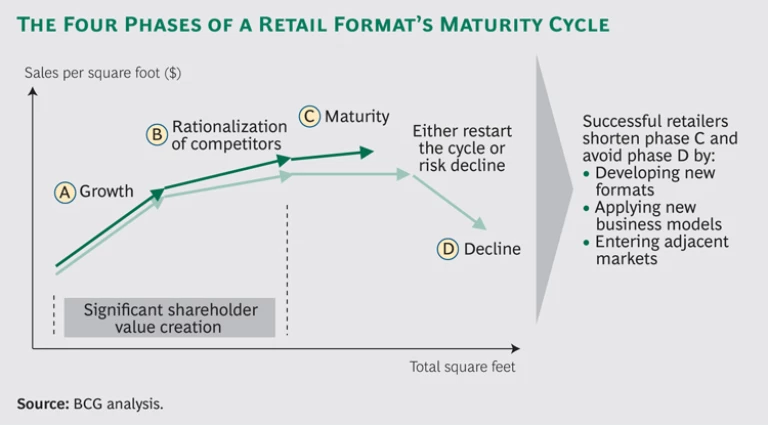Time is not kind to retail formats. As long as they are still competitive, they drive up store traffic, sales, and profits by surpassing the competition on multiple key dimensions of the customer experience. They thrive because, among other things, they deliver a better product offering, a more attractive service model, or lower prices. But the performance of retail formats inevitably erodes because customer needs evolve over time and new alternatives—superior formats or new channels—emerge and grow. Today consumers have numerous attractive ways to purchase almost every type of product and service that they want or need. They can choose among hypermarkets, specialty retailers, hard discounters, club stores, and more.
On top of this, the face of “traditional retail” is being forever changed by the continued rise of online shopping as a viable and often superior alternative. The intensity of the online threat varies by product category—it’s less severe in groceries than in consumer electronics, for example—but few would argue that online is a factor that can safely be ignored.
The result is a very dynamic and hypercompetitive retail landscape. The consequences are clear: retailers must accept that they will have to reinvent and adapt their store concepts over time if they are to have any chance of sustainable long-term growth. Thus, it is important for them to think through the maturity cycles of different retail formats and to implement appropriate strategies based on their current format and its level of maturity. (See the exhibit below.)
This report focuses on retail-concept reinvention: making significant improvements to an existing retail format in order to keep it current and compelling for customers. Our experience suggests that making the most of a company’s current retail format and capabilities with the goal of reinvention is the best way for retailers to achieve high returns on investment. However, the ideas and success factors discussed below also apply more broadly—for example, to the development of entirely new retail concepts.






